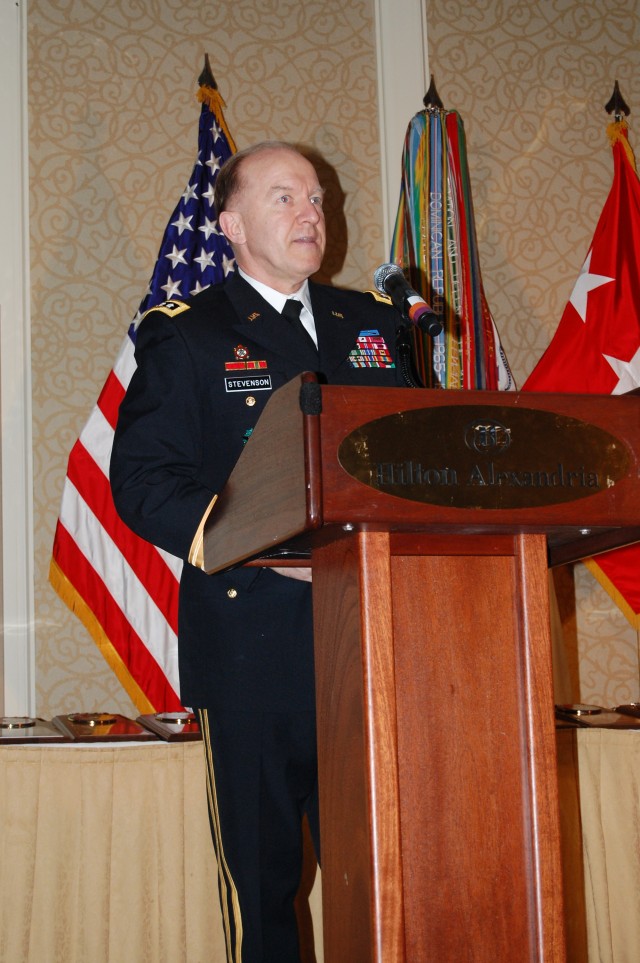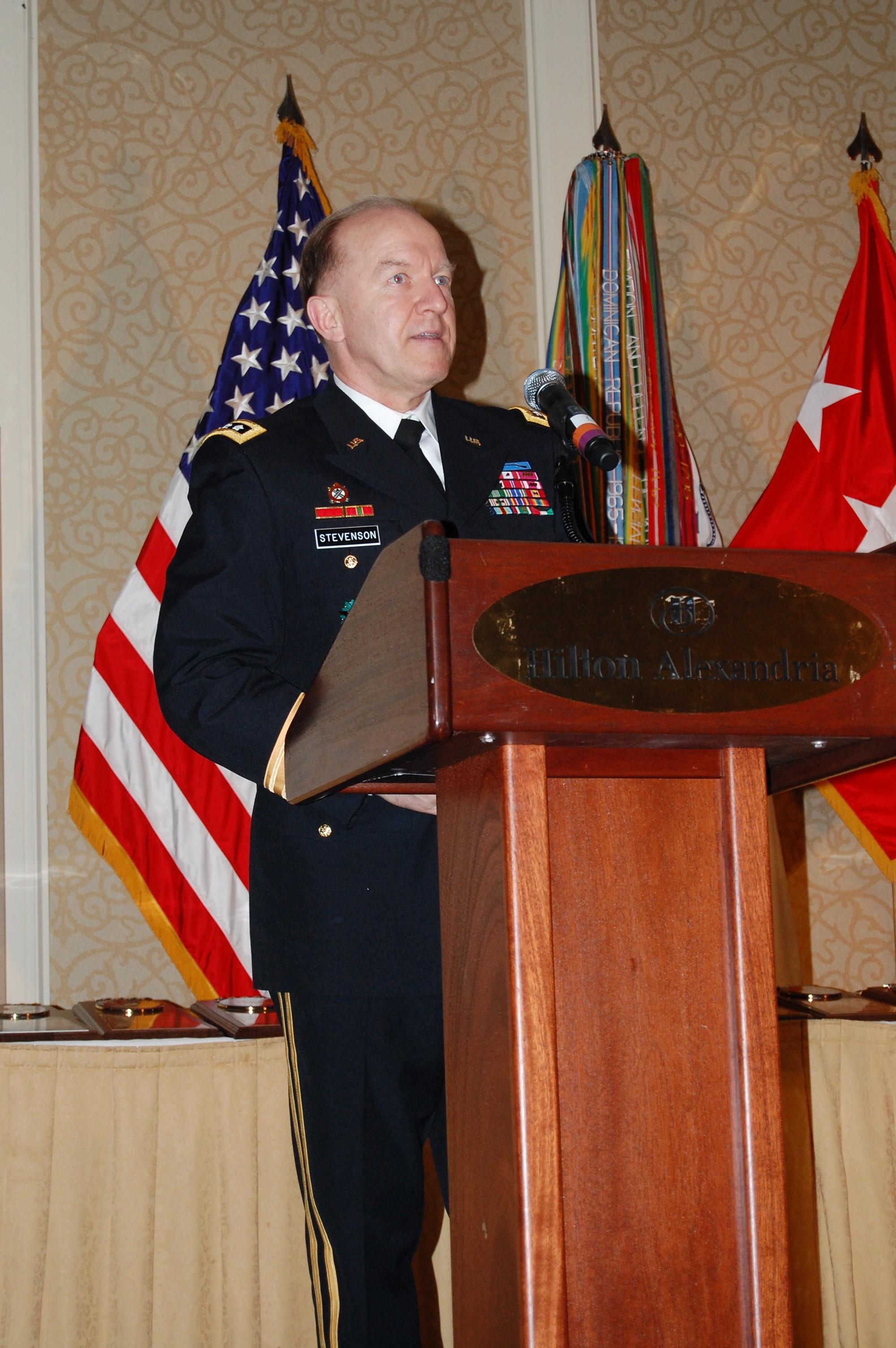Remarks as prepared for delivery at the 2009 Combined Logistics Excellence Awards ceremony, June 2
Good afternoon everyone. Welcome to our nation's capital. You have come all the way from 26 states, two territories, and seven countries (including a war zone) to be here representing your units. And I know all of you have been eagerly awaiting this day. For some of you, this is your first trip to Washington, and so I'm delighted that this event this week has given you that chance.
To be honest, I've been eager too, because there is much meaning in today's ceremony. What I see are not only 95 winners, but 550,000 boots on the ground who win by the work your units do every day to enhance Army readiness.
In many military ceremonies, we decorate one individual for his or her extraordinary valor; or we promote one person for her or his potential to lead; or we salute another for years of service. In every American endeavor, there are stars -- whether it's LeBron James on a basketball court, or a singer who becomes our American Idol.
But this military ceremony today is different from the ones you've attended in the past. It's not about showcasing individuals. It's about showcasing units. It's about showcasing the efforts of a collective body.
When you get called up here in a few minutes, it will be the name of your depot, your company, your maintenance shop, your combat support hospital, your installation, or your battalion or squadron that is called -- with you as its representative. I might be shaking your hand, but what I'm really doing is congratulating you for your team, who hung together every day and took no shortcuts to get your unit here.
And that's how it should be. That's what it means to be Army Strong, isn't it' To be Army Strong, we need every unit working together to be responsive, and resourceful, and agile. The ability of the Army to succeed in Iraq and Afghanistan depends in no small measure on what every last unit in the Army does, 24/7.
In looking over your achievements, from the big battalions to the small units, you represent the very best in logistics. The Fort Riley Deployment Team is here because of the incredible job they did to move 33,000 deploying soldiers, 700 railcars, and 2,700 pieces of equipment. The 838th Transportation Terminal Battalion from Rotterdam (in the Netherlands) is here because, on short notice, they sent support teams to assist another unit move 1,000 pieces of equipment as they continued their own operations.
An Army Guard unit out of Olympia, Washington, is here, the very first time an Army Guard unit has won an all-Army category, because of the job they did in deployment operations at Fort McCoy, Wisconsin. They were organized, motivated, and perfect at packing up and moving out. And the 558th Trans' Supply Support Activity Unit is here, having recorded 100 percent inventory accuracy in its warehouse and a terrific safety program. It was a team effort of Soldiers and civilians who made it happen.
And I'm pleased to report that for the very first time in a Combined Logistics Excellence Awards Ceremony a unit is here that won while deployed in Iraq -- the 54th Engineer Battalion, out of Germany. This unit had just changed over to a modular structure -- and when they got into theater, they assumed responsibilities for a much larger organization than they were used to. And then they proceeded to distinguish themselves for their maintenance work on the MRAP, a vehicle they'd never even seen before.
As a former Chief of Ordnance, I'm especially pleased to see that so many winners have embraced two-level maintenance, where unit mechanics perform most maintenance functions, from bumper-to-bumper. It's something we've worked hard on for many years, because it's a way to streamline maintenance and reduce all that wasted time handing off equipment from unit to unit just to get maintenance done. And as all of you proved, it also helps us keep our readiness up as we fight these wars in which our nation is engaged.
I could go on and talk about every one of your units, in Supply, Maintenance, and Deployment, because you are all outstanding. And your winning is all the more commendable because you won against many other great teams across the Army. This year, we received 17 percent more applicants than last year -- you kept the judges busy for six months.
And, that reminds me, I want to be sure to thank our judges from the U.S. Army Transportation, Ordnance, and Quartermaster Schools, augmented by the Army National Guard and Army Reserve. They traveled the world, including to Iraq, to check your work. And when you ask them what it's like to do evaluations, they'll tell you that in one sense, it's not hard. They have a guidebook, based on Army standards, and they know exactly what they are looking for. But on the other hand, everyone wants to win these awards, so units go out of their way to look good -- and it turns out they make themselves look so good, the evaluators must employ the old trust but verify technique.
But what the judges really like, and I certainly appreciate, is that some teams come close to winning. And instead of being frustrated when they don't make it, they just work harder the next year. In fact, I know that some of you are here today because you were in that boat.
What I also appreciate is that many of you here today are NCOs. As all of you probably know, this is the "Year of The NCO," in which we rightly recognize the vital role our non-commissioned officers play in our Army. Without question, much of the success that we have achieved in OIF and OEF is because of the effectiveness of our small units, energized by our NCOs. Since 9/11, NCOs have earned more than 60 percent of our awards for valor, yet they represent less than 40 percent of our force.
I know I would not be the General I am today, were it not for NCOs like CSM Aubain, who expertly watches over Logistics Soldiers for me in the Pentagon. Or were it not for my first platoon sergeant, SFC Grooms, a wise and patient man, who taught many a rookie lieutenant. Or were it not for my father, or my father-in-law, both of whom were career NCOs -- so you know I was brought up right!
So, for all the NCOs who are here today, would you please stand. And would everyone else please join me in thanking them for what they do for our Army and our Nation.
Last month, General Casey announced some good news for all of us. He's been working tirelessly to get our Army back in balance, to provide Soldiers more time at home between deployments. Given the drawdown path we are on now in Iraq, and assuming no new demands, we should get to at least two years of dwell time between deployments within the next two years. That's going to be good, and I know you are looking forward to that.
But to get there, we have to draw down our force in Iraq, and much of that work will be the task of the logistician. It's going to be a heck of a challenge, safely moving out combat troops and billions of dollars of equipment. And it will be a herculean effort to repair all that equipment, which has been exposed to some of the harshest of desert conditions. But with the caliber of logistician that I see here in this room, I have no doubt it will all be done to standard.
And of course, as we draw down in Iraq, we'll also be building a stronger presence in Afghanistan, one of the most challenging places in the world to get supplies into and out of. So, there will still be plenty of challenges for us logisticians. And if that were not enough, we're also in the middle of moving brigades all over the country, and in some cases the world, to comply with base realignment and closure plans. Over the next two years, we'll move more than one half of the entire active force in some way.
How will we do it' Well, it's up to you. At the Pentagon, we can make plans and put policies in place to help. But it's up to you to continue the fine work you are being honored for today, and somehow, some way turn it up a notch. That wonderful logistics video that is playing in the lobby describes what it is you do for our nation, as logisticians, you are: Always there. Always ready. Thanks very much for what you do for your country -- you make us all so very proud!
Army strong!


Social Sharing